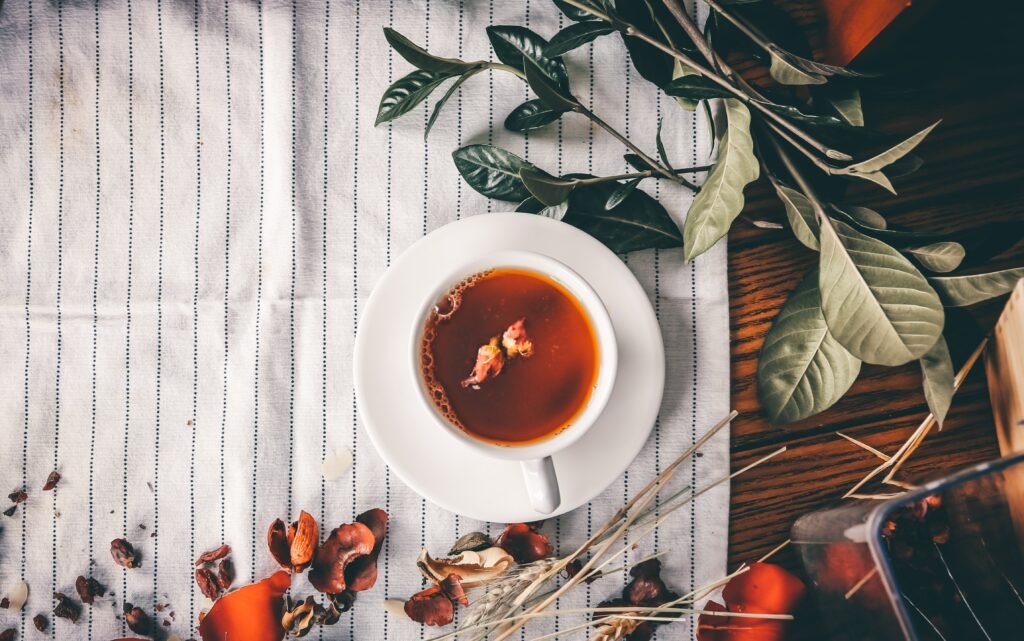The world of tea is a vast and intricate tapestry of flavors, aromas, and experiences. At the heart of this tapestry lies the concept of tea clones, a fascinating aspect of tea cultivation that allows growers to replicate exceptional tea plants and maintain the integrity of beloved tea varieties. In this article, we dive into the realm of tea clones, exploring their significance, the process of cloning, and their vital role in shaping the diverse spectrum of teas we enjoy today. Tea Clones: Preserving Excellence Through Genetic Replication

- Introduction: Unraveling the Magic of Tea Clones
- The Art of Replication: How Tea Cloning Works
- Genetic Consistency: Ensuring Uniformity Among Clones
- Cloning vs. Seed Propagation: Advantages and Differences
- The Quest for Excellence: Selecting Clones for Replication
- Preserving Heritage: Cloning to Save Endangered Tea Varieties
- Innovations in Cloning Techniques: From Traditional to Modern
- Beyond Replication: Enhancing Tea Traits Through Cloning
- Challenges in Cloning: Genetic Instability and Disease Susceptibility
- Sustainable Cloning Practices: Balancing Benefits and Risks
- Community Impact: Cloning’s Role in Empowering Tea Growers
- Clones and Consumer Experience: How Cloning Shapes Tea Quality
- Future Horizons: Research and Advancements in Tea Cloning
- Cloning in the Modern World: Commercial Applications and Ethics
- Conclusion: Nurturing the Legacy of Tea, One Clone at a Time
- FAQs
Introduction: Unraveling the Magic of Tea Clones
Tea clones offer a window into the intricate genetic diversity of tea plants, allowing growers to replicate exceptional qualities and flavors.
The Art of Replication: How Tea Cloning Works
Tea cloning involves selecting a healthy mother plant and cultivating new plants from cuttings to produce genetically identical clones.
Genetic Consistency: Ensuring Uniformity Among Clones
Clones retain the exact genetic makeup of their parent plant, ensuring consistent flavor, aroma, and growth patterns.
Cloning vs. Seed Propagation: Advantages and Differences
Cloning offers more predictable results compared to seed propagation, which can result in genetic variation.
The Quest for Excellence: Selecting Clones for Replication
Tea growers carefully choose superior mother plants with exceptional traits to produce clones that showcase the best qualities of the tea.
Preserving Heritage: Cloning to Save Endangered Tea Varieties
Tea cloning plays a crucial role in conserving rare and endangered tea varieties that may be threatened by extinction.
Innovations in Cloning Techniques: From Traditional to Modern
Advancements in propagation methods, such as tissue culture, have revolutionized the efficiency and success rate of tea cloning.
Beyond Replication: Enhancing Tea Traits Through Cloning
Scientists and growers explore ways to use cloning to enhance specific traits like disease resistance, drought tolerance, and flavor profiles.
Challenges in Cloning: Genetic Instability and Disease Susceptibility
Genetic instability and vulnerability to diseases are challenges that tea clones may face, leading to potential issues in the long run.
Sustainable Cloning Practices: Balancing Benefits and Risks
Balancing the benefits of cloning with potential risks requires implementing sustainable practices to maintain genetic diversity.
Community Impact: Cloning’s Role in Empowering Tea Growers
Cloning provides small-scale tea growers with the opportunity to access high-quality tea plants and improve their livelihoods.
Clones and Consumer Experience: How Cloning Shapes Tea Quality
Cloning influences the consistency and quality of the tea consumers enjoy, ensuring a reliable and desirable experience.
Future Horizons: Research and Advancements in Tea Cloning
Ongoing research aims to improve cloning techniques, overcome challenges, and explore new possibilities for enhancing tea production.
Cloning in the Modern World: Commercial Applications and Ethics
Cloning has commercial applications, but ethical considerations regarding genetic diversity and environmental impact must be addressed.
Conclusion: Nurturing the Legacy of Tea, One Clone at a Time
As we raise our cups to savor the complexity of tea, let us appreciate the intricate science and dedication that go into preserving tea’s exceptional qualities through the art of cloning.
FAQs
1. Can cloned tea plants exhibit any differences from the parent plant? While clones are genetically identical, environmental factors can still influence certain characteristics, such as flavor nuances.
2. Are there any potential downsides to relying heavily on cloning for tea production? Over-reliance on cloning could lead to reduced genetic diversity, making tea crops more susceptible to diseases and other challenges.
3. Can cloning contribute to the development of new tea varieties? Yes, cloning provides a foundation for further breeding and hybridization efforts to create new and improved tea varieties.
4. Are there any legal or regulatory considerations related to tea cloning? Some countries have regulations governing the import and export of cloned tea plants to prevent the spread of diseases.
5. How do researchers address the issue of genetic instability in cloned tea plants? Researchers are working to develop more stable cloning methods, such as using tissue culture techniques, to mitigate genetic instability.
Contact Details:- 9499347308
